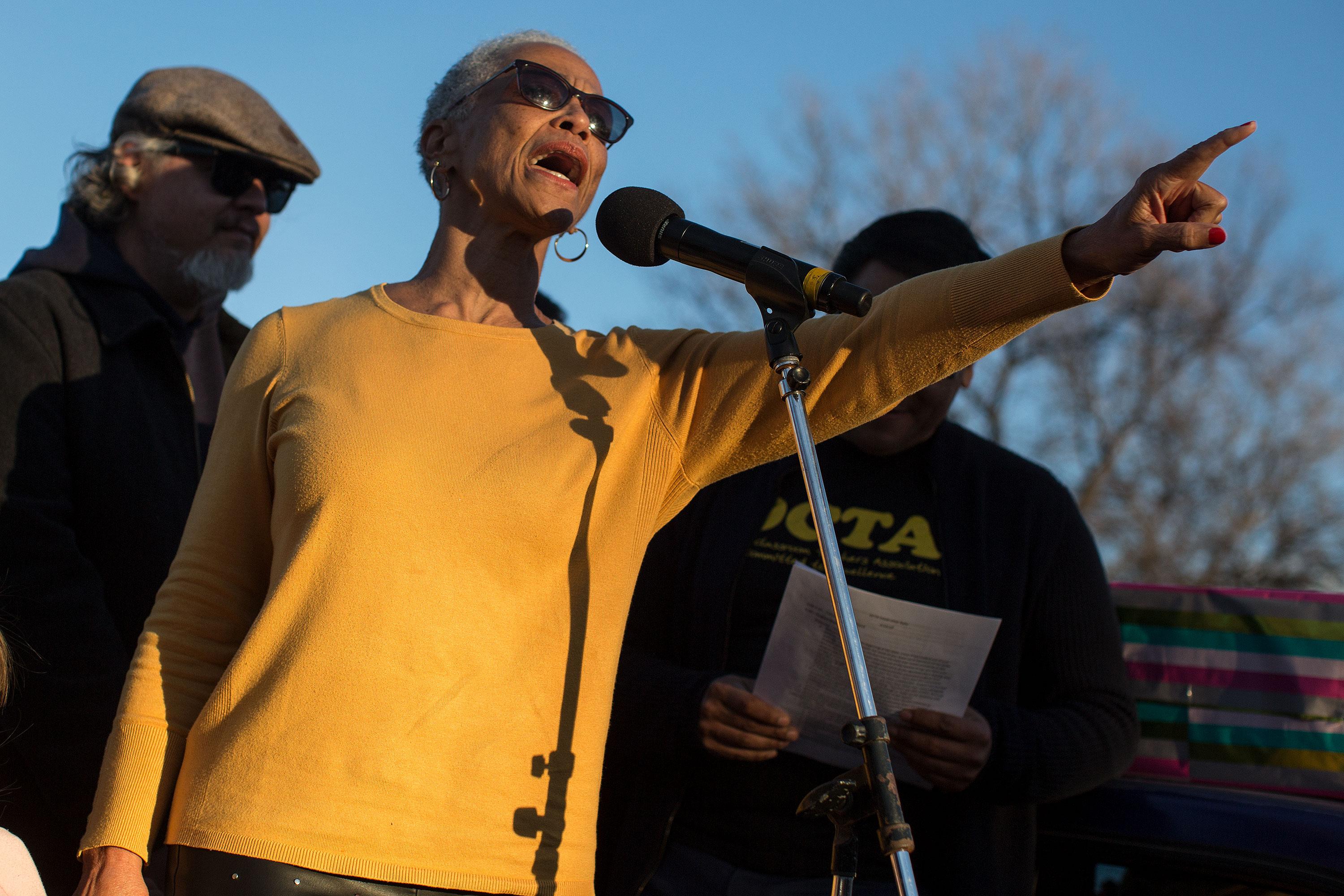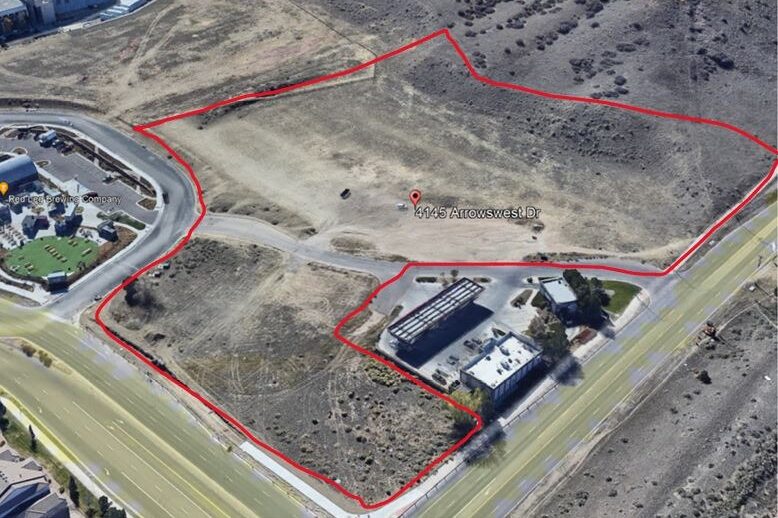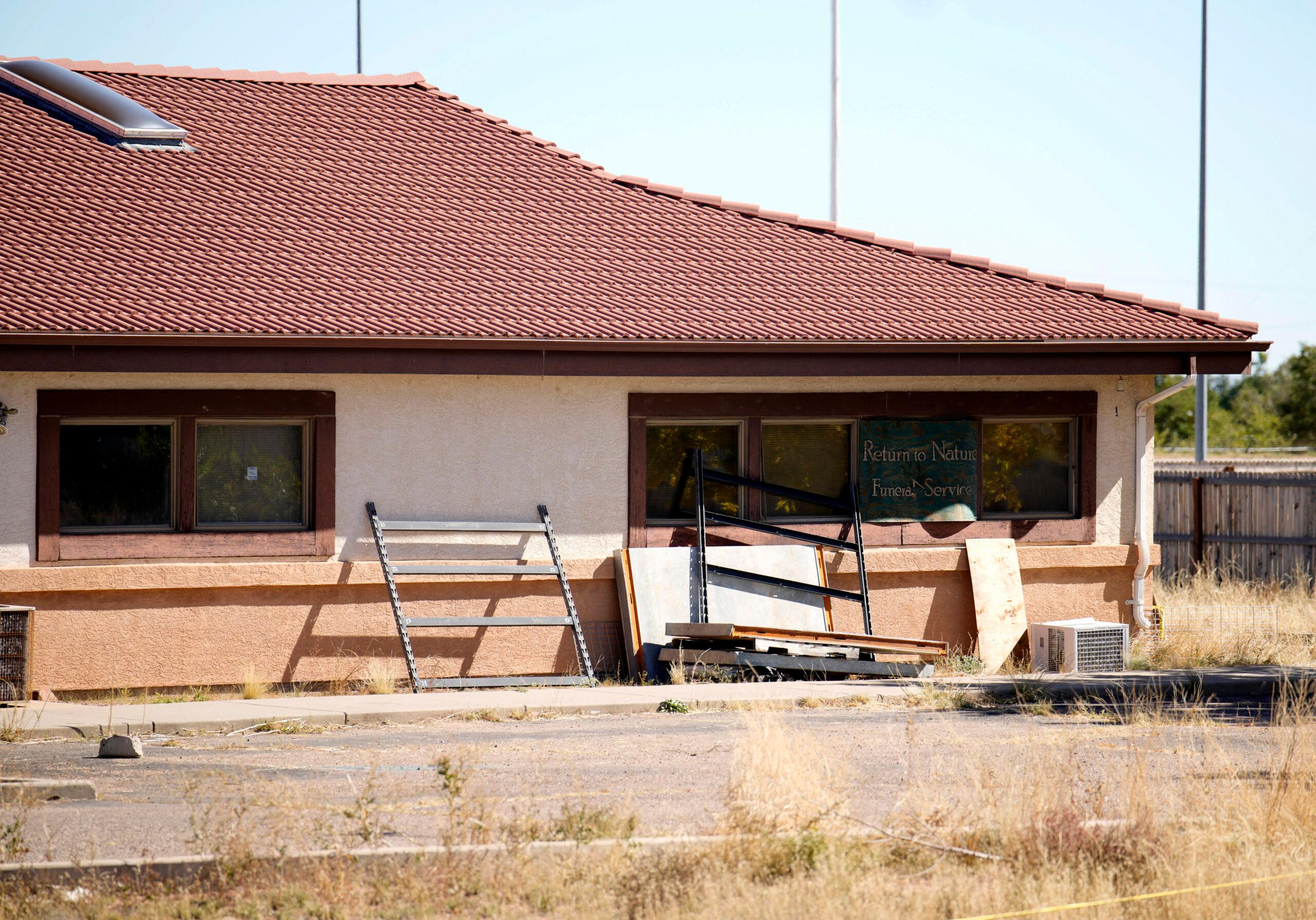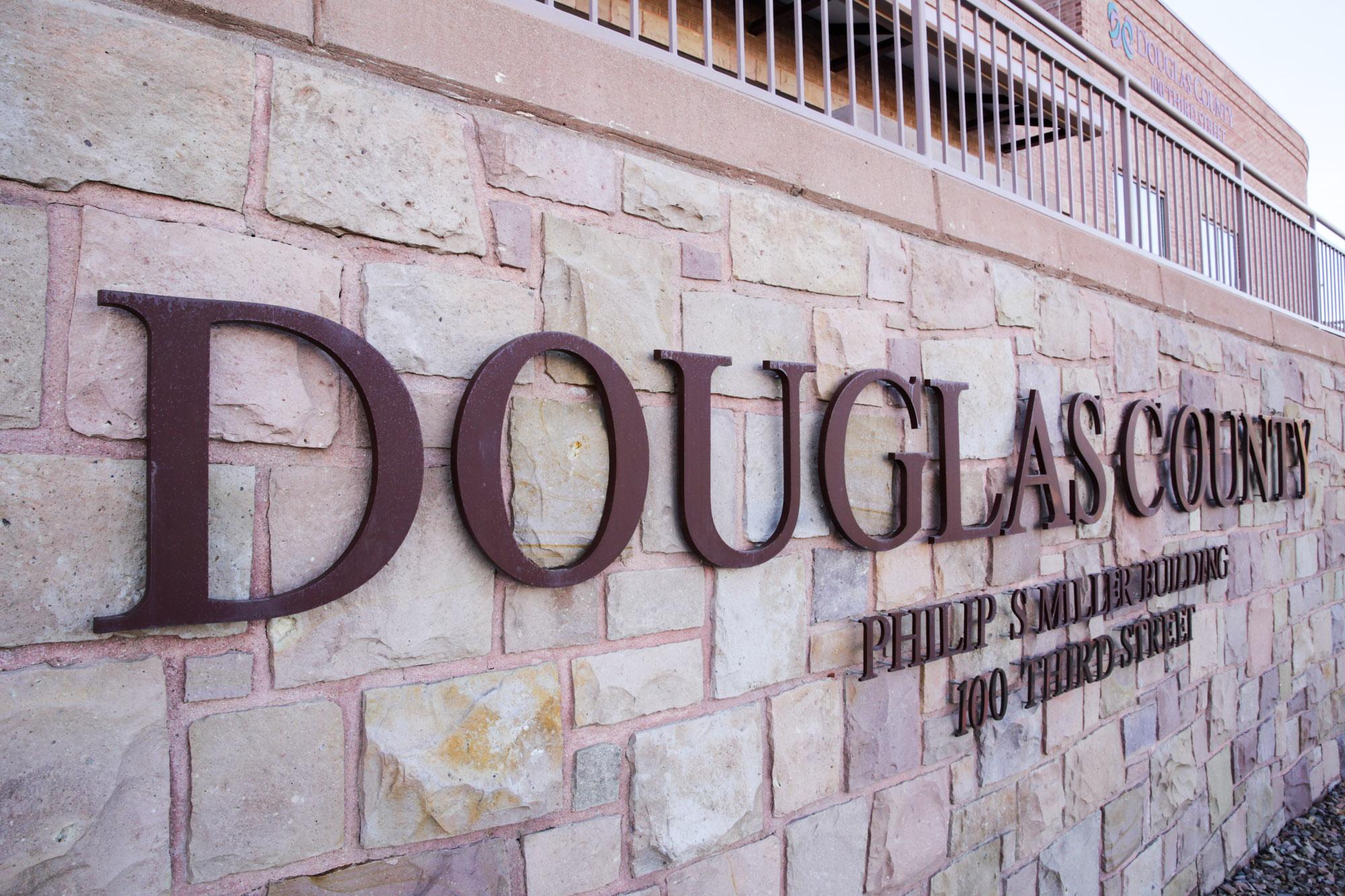

For three days in early February, Denver teachers used their strike as a very public hammer against the school district. Gathered on the steps of Civic Center Park’s Greek amphitheater on day two, veteran educator Valerie Henderson told the crowd that their “campaign for fair compensation is also a fight against failing school reform efforts and a chance for teachers to build our collective power.”
The new labor deal that teachers ratified can be seen as one victory. The 700 new members the Denver Classroom Teacher Association added to their ranks is another.
Educators now see that “collective power” as something they can use to shape the path Denver Public Schools takes in the years to come.
“This is the first step in a longer process, a longer fight,” said math teacher Cory Montreuil of the Denver Center for International Studies at Montbello. “This is about being proud of the district that we work in and we serve. The pay fight was the first step.”
He has a long list of improvements, but at the top of the list he’d like the district to focus on retention of teachers and administrators of color.
“I want my staff to be better representative of the kids that we’re serving, the families that we’re serving,” he said.

Montreuil also wants to see more student-centered services and more resources. Nurses, social workers and psychologists in schools is high on the list for union leaders too – alongside a reversal in teacher turnover and smaller class sizes.
Compared to the rest of the city of Denver, the Montbello neighborhood is more diverse and more impoverished. For a time, several of its schools academically struggled. Many point to the school reforms implemented here as emblematic of the wider challenges that envelop Denver Public Schools.
The Charter Boom
In 2010, DPS voted to phase out Montbello’s comprehensive high school, where fewer than 60 percent of students graduated. The massive turnaround plan involved six schools, including a number of charter schools and smaller “innovation” schools which were approved. The area now has at least 10 high schools. The district points to higher test scores and admissions as proof of the plan’s success. Some teachers and community members say ‘dig deeper.’
“You’ve chopped up a community and made all these tiny schools compete for resources and kids,” Montreuil said.
Some of the teachers at district-run schools say the influx of charters siphoned off many motivated, academically proficient students. Neighborhood schools like Abraham Lincoln High School in the city’s southwest have hemorrhaged students — enrollment dropped 63 percent since 2013. Per student funding is then restricted, which means fewer electives for those who remain.
Montreuil said the same forces have acted in the northeast. In order for smaller schools to preserve some electives, teachers must teach many more “prep” classes which require much more work.
The innovation schools are another big grievance. Some teachers feel they don’t work like they’re supposed to. Innovation status for these district-managed schools is something teachers vote on. It is supposed to grant more flexibility with the curriculum but it also waives some of the teachers’ rights — they often work longer days and longer school years.
The innovations and charters have created new challenges for academic leaders and new worries, which Montreuil said leaves little time for innovative curriculum development.
“They’re worrying about retaining students, because that’s money. They’re worried about all of these hoops from the district, and they’re not able to actually do the things that they need to do,” Montreuil said.
‘Reform The Reform’
It’s unclear how much a role the contentious issue of how a schools is governed — charter, innovation, or district-run — will play in the new district administration of Superintendent Susana Cordova. She was on the job just over a month before the teachers voted to strike.
A fifth of Denver students now attend charter schools. At every school board meeting there is a steady stream of parents and charter school students who lavish praise on them.
“Strive Prep Excel is that healthy environment,” junior Alondra Bahena-Reza told the board on Feb. 21. “It is a small school but once inside you find all the resources that will allow you to continue growing and finding your own true genius. Excel has empowered me to do my best.”
Cordova’s entry plan for her young term in charge of the district includes a listening tour to meet with students, community groups and the union and its teachers. She sees collaboration as “the pathway to having successful schools; innovation, charters or district managed.”
The union argues that the growth in charter schools has come at a high cost to other schools and their students.
“The idea is that as you improve the level of support and those schools start doing better, that the choice will be right there, it’s your neighborhood schools,” said Henry Roman, the president of the DCTA.

Cordova said high performing charter schools have benefited children who attend them. They’ve also pushed district-run schools to better define their improvement plans, work with families and improve school identities. For Cordova, competition can help all schools, though she acknowledges there are times when it can be detrimental.
“I think it’s become increasingly difficult in an environment where we see declining enrollment for that competition to take on the healthy aspects of what you can get when you’re pushing yourself to be better because you see others being better around you,” she said.
Even groups who backed the rapid expansion of innovation and charter schools believe the district’s reforms are in need of some fine-tuning.
“Might be time to reform the reform,” said Landon Mascareñaz of A+ Colorado. At the same time, he believes that the reforms have pushed the district ahead academically.
“All parties need to reconcile the fact that Denver’s gone from being one of the lowest performing districts in the state to at average or above average on many indicators. That’s significant growth for a large system,” he said.
Still, Denver has one of the largest achievement gaps in the nation between white students and those of color.
“Eight out of 10 white students in Denver Public Schools are meeting college ready expectations on the SAT, and three out of 10 students of color are,” said Ariel Taylor Smith, co-founder of Transform Education Now. “That’s an unacceptable gap.”
A+ will conduct a series of policy briefs called Denver’s Next Journey which will bring a set of facts to the next stage of reform and answer questions like: What role has school choice played? Did reforms work or not and how is that measured?
Superintendent Cordova said the district should constantly re-examine the way it’s operated in the past. A key priority for her, which all sides appear to agree on, is the achievement gap. In the school board and Cordova’s first post-strike board action, school staff will now be required to take training in implicit bias and schools must set goals and monitor progress specifically for African-American students.
Cordova would also like teachers to read and examine a ground-breaking national study that shows in schools with high numbers of low-income and kids of color, “the quality and rigor of instruction, of resources is just not at the same place as it is in schools that have higher income students or primarily white students,” she said.
Flip The Board
For the past decade, a majority of the school board has embraced Denver’s universal school choice system and the rapid expansion of charter schools. Any future direction Cordova takes will depend in large part on the outcome of November’s board elections. There are three seats are up for grabs and teachers have designs on them.
“Flip the board” was a common rallying cry heard during the strike. It’s clear that the mobilization of teachers will be a major factor in the races.
Many board members bristle at placement into one camp or the other. Angela Cobián, who represents southwest Denver and was described as a “reform-backed” candidate when she was elected, said she supports many of the union’s priorities such as more social workers and psychologists. As a former teacher, she is familiar the emotional toll placed on teachers when students come to them upset that their parent has gone to jail, or when they’re asked by parents for help in signing a lease.
Cobián grew up in southwest Denver at a time when parents of color pushed for change. Charter schools, she said, were a way to address that.
“Since then, I believe that we are in a position to be able to learn about what worked from that as an intervention strategy and what didn’t work,” she said.
The union, however, has made clear it will back school board candidates who support investments in neighborhood, district-run schools. Union president Roman said they don’t support candidates who are “agnostic” on charter schools.
Money is expected to pour into the races and some worry it will derail all parties from what they agree on.
“We do not have time for adult politicking right now,” said Ariel Taylor Smith. “Our students every single day are sitting in classrooms where they are either getting ahead or falling behind and the unfortunate reality is not all of our schools are even making one year’s [academic] growth in one year. We have to do better and there needs to be an urgency around it that does not give way to adult politics.”
Cordova wants to keep the lines of communication open with teachers so frustrations don’t reach the point that led into the strike. She appears to want to make a clean break from the adversarial position her predecessor Tom Boasberg had with the union.
She is in agreement with DCTA’s priorities on teacher turnover and more nurses and psychologists in schools that need them. And hopes to augment the budget of schools hurt by declines in enrollment as demographics shift.
Cordova even hopes to enlist union’s momentum for another problem the district faces.
“We need to be working arm in arm with our teachers to help fix the state funding system,” she said.
“Do I have a librarian or do I have a full time social worker? These are terrible tradeoffs that we should not have to be making in a city as wealthy as Denver.”
Lawmakers are at work on several proposals to get more money into schools, but the issue is a vexing one that’s ended in failure before. In order to balance the state budget, state lawmakers have withheld nearly three-quarters of a billion from DPS since 2008. The shortfall in the current budget is $70 million.
The deficit laid the tinder for the teachers’ strike. Whether the strength teachers amassed there will be turned solely toward reform or school funding is yet to be seen.
Editor's Note: This article has been updated to reflect the correct spelling of Landon Mascareñaz's name.








